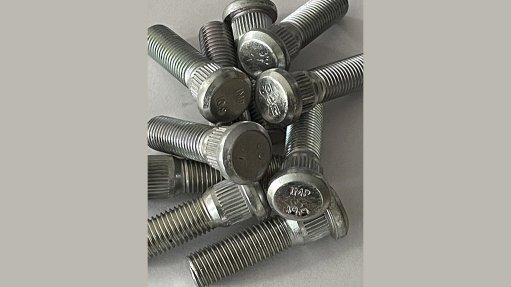Beyond the nameplates
Ever wondered how African countries – and some of the continent’s cities – got their names? The origins of some of these names might just surprise you. While some nations adopted new names after independence, not all the names we know today were coined by Africans themselves. Let’s dive into a few of these intriguing stories – the answers might be as unexpected as the names themselves.
We’ll start with Kenya, an East African economic powerhouse renowned for its wildlife and national parks. It’s also the country that gave the world Ngugi wa Thiong’o, the literary virtuoso who, inexplicably, has gone unnoticed by those who select laureates for the Nobel Prize for literature. You also can’t talk about African marathon running without mentioning Kenyan athletes, who have brought home numerous Olympic and World Championship accolades over the years.
You would think Kenya is an indigenous name; perhaps from the Kalenjin, Kikuyu, Luo or Maasai – some of the prominent nations in the land. Yes, they are nations, not tribes! The country’s name actually originates from the British pronunciation of the Kikuyu word for what would become known as Mount Kenya – Kirinyaga. This mountain features prominently in two of Ngugi’s novels, The River Between and Weep Not, Child. It means “He who shines in holiness”.
And Cameroon? It too was not named by a son or daughter of the African soil. The country’s name originated from the Portuguese expression, Rio dos Camarões, which means “River of Prawns”. This was the name given to the Wouri river by Portuguese explorer Ferñao do Po when he came across the river’s estuary during the fifteenth century, owing to its abundance of prawns. Over time, the name was extended to the coastal town of Douala and its coastline and eventually to the entire country.
When it comes to Nigeria, there is an indigenous element to the West African nation’s name – it’s named after the Niger river, the third-longest on the continent, after the Nile and Congo rivers. But it was not an African who named it; it was Flora Shaw – a Times of London journalist and later the wife of Nigeria’s colonial governor-general, Frederick Lugard.
Staying with Nigeria, many would assume Lagos, the country’s commercial hub and biggest city, with a population of 16.5-million people, is an African name. It’s not. It actually means “lakes” in Portuguese, a reference to the islands in the lagoon upon which it is built. However, while Lagos is the official name, it is used daily by relatively few people, with the majority of its inhabitants – mostly Yoruba-speakers – preferring the indigenous name, Eko.
It’s also a European, the famous thirteenth- century Italian explorer, Marco Polo, who is behind Madagascar’s modern identity. Here’s how it happened: it’s believed he mistook it for Mogadishu, in Somalia, recording it as Madageiscar. So, it was this corrupted transliteration of Mogadishu that eventually gave the world’s second-largest island nation its modern name.
Had it not been for name changes that occurred at independence, some African countries would still be known by decidedly European names. Zambia and Zimbabwe, for example, would still be Northern Rhodesia and Southern Rhodesia respectively. For the two neighbouring countries, doing away with the name Rhodesia was a significant way of severing ties to Cecil John Rhodes, one of the greatest advocates of African colonialism.
Countries that discarded their European, or European-inspired, names on gaining independence also include Ghana, formerly the Gold Coast, and Malawi, formerly Nyasaland.
It’s not only Europeans who are behind the names of some of Africa’s countries and cities. Arabs too have left their mark. Over the border in what is now Mozambique, a sheik named Mussa bin Bique ruled the area when the Portuguese arrived those many centuries ago and they would go on to call the country Moçambique.
Additionally, Sudan got its name from the Arabic phrase, Bilad as-Sudan, meaning “land of black people”, while Comoros derived its name from tenth-century Arab traders, who called it Kamar, or Kumr, meaning moon, because of the half-moon shape that the four original islands of Comoros form.
These names reveal the complex history behind Africa’s identity.
Article Enquiry
Email Article
Save Article
Feedback
To advertise email advertising@creamermedia.co.za or click here
Press Office
Announcements
What's On
Subscribe to improve your user experience...
Option 1 (equivalent of R125 a month):
Receive a weekly copy of Creamer Media's Engineering News & Mining Weekly magazine
(print copy for those in South Africa and e-magazine for those outside of South Africa)
Receive daily email newsletters
Access to full search results
Access archive of magazine back copies
Access to Projects in Progress
Access to ONE Research Report of your choice in PDF format
Option 2 (equivalent of R375 a month):
All benefits from Option 1
PLUS
Access to Creamer Media's Research Channel Africa for ALL Research Reports, in PDF format, on various industrial and mining sectors
including Electricity; Water; Energy Transition; Hydrogen; Roads, Rail and Ports; Coal; Gold; Platinum; Battery Metals; etc.
Already a subscriber?
Forgotten your password?
Receive weekly copy of Creamer Media's Engineering News & Mining Weekly magazine (print copy for those in South Africa and e-magazine for those outside of South Africa)
➕
Recieve daily email newsletters
➕
Access to full search results
➕
Access archive of magazine back copies
➕
Access to Projects in Progress
➕
Access to ONE Research Report of your choice in PDF format
RESEARCH CHANNEL AFRICA
R4500 (equivalent of R375 a month)
SUBSCRIBEAll benefits from Option 1
➕
Access to Creamer Media's Research Channel Africa for ALL Research Reports on various industrial and mining sectors, in PDF format, including on:
Electricity
➕
Water
➕
Energy Transition
➕
Hydrogen
➕
Roads, Rail and Ports
➕
Coal
➕
Gold
➕
Platinum
➕
Battery Metals
➕
etc.
Receive all benefits from Option 1 or Option 2 delivered to numerous people at your company
➕
Multiple User names and Passwords for simultaneous log-ins
➕
Intranet integration access to all in your organisation

















